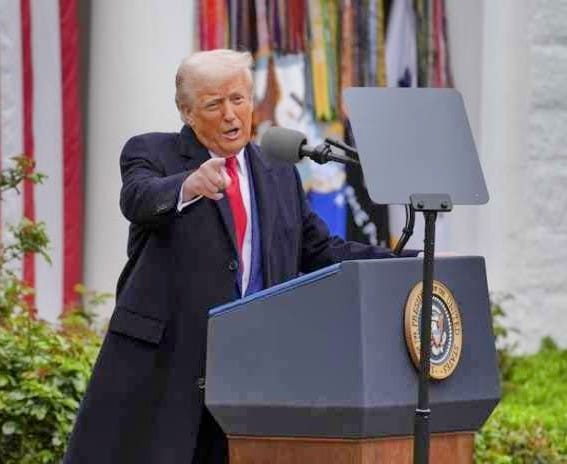By Staff Correspondent, Dhaka – With US President Donald Trump’s newly announced tariffs, Bangladesh faces an urgent need to renegotiate trade terms with the United States to mitigate its impact. Business leaders, economists, and trade analysts see this as a major blow to the South Asian nation’s economy.
Bangladesh, the world’s second-largest apparel exporter after China, is heavily reliant on its exports to Western markets, with the US being its largest single destination. Under Trump’s reciprocal global tariff policy, the US has imposed a 37% import tax on Bangladeshi products.
The new tariff rates range from a base of 10% to as high as 60% for various other nations.
Bangladeshi manufacturers and exporters warn that the tariff hike could severely impact the nation’s clothing sector, which employs over 4 million workers, mostly women, across 4,000 factories, and a large backward linkage industry.
Rakibul Alam Chowdhury, former BGMEA vice president, highlighted that Bangladesh exports over $7 billion worth of garments to the US annually, making the country one of the hardest-hit by the tariff increase.
Competing nations like India and China face lower tariff rates, making Bangladesh’s products less competitive in the US market.
“Buyers bear the cost of duties, and if the added tariff pushes prices beyond market limits, US buyers will naturally shift orders to lower-tariff countries,” Chowdhury warned.
Bangladesh’s manufacturing costs are already rising due to wage hikes and inflation, making it even harder for local manufacturers to remain competitive. Many companies are now engaged in urgent discussions with buyers to secure existing and future orders.
The 37% tariff on Bangladeshi goods is part of Trump’s reciprocal tariff policy, which is based on the tariff rates imposed by trading partners on US goods. Since Bangladesh levies a 74% tariff on US imports, the US has retaliated with a 37% tariff on Bangladeshi exports.
Chowdhury called this an unrealistic comparison, pointing out that Bangladesh imports very few goods from the US. He urged the government to reassess its tariff policies and engage in diplomatic talks to seek tariff relief.
Economist Selim Rayhan of Dhaka University believes that the new US tariffs mark a volatile shift in global trade policies.
He said that Trump’s decision challenges the long-standing Most Favoured Nation (MFN) principle under the WTO framework and increases uncertainty for developing nations like Bangladesh.
“The future of global trade is now uncertain,” Rayhan said.
“Bangladesh must rethink its domestic trade policies, strengthen regional trade alliances, and actively engage with global economic forums to secure its position in the evolving world order.”
Trade experts argue that lowering Bangladesh’s tariffs on US imports could provide a path for negotiation.
Mahfuz Kabir, research director at the Bangladesh Institute of International and Strategic Studies (BIISS), said the importance of leveraging the Trade and Investment Cooperation Forum Agreement (TICFA), a platform for bilateral trade negotiations.
“Without TICFA, Bangladesh has no formal channel to negotiate,” Kabir explained.
He urged the government to immediately initiate discussions with the US Trade Representative (USTR) and the White House to explore tariff reductions.
India, Bangladesh’s biggest competitor, faces a significantly lower tariff of 26%, making it a more attractive sourcing destination for US buyers.
Other competitors, such as Sri Lanka (44%) and Vietnam (46%), face higher tariffs than Bangladesh, but the difference in rates could still impact global trade dynamics.
The Bangladesh government has responded by reviewing tariffs on US imports.
A statement from the Chief Advisor’s Office confirmed that the National Board of Revenue (NBR) is exploring ways to rationalise tariffs to address the issue.
“Bangladesh is assessing its tariffs on US imports,” said Shafiqul Alam, press secretary to the Chief Adviser. “The government is working on a solution to minimise trade disruptions caused by the new US tariff policy.”
With the spring-summer 2026 order season approaching in mid-2025, the window for action is narrowing.
If Bangladesh fails to negotiate tariff reductions, the garment industry could see significant job losses, slower growth, and a decline in overall economic performance, said Josim Ahmed, another Bangladeshi garment manufacturer.
With Trump’s trade policy reshaping global commerce, Bangladesh must act quickly to secure its trade position, he emphasised.


